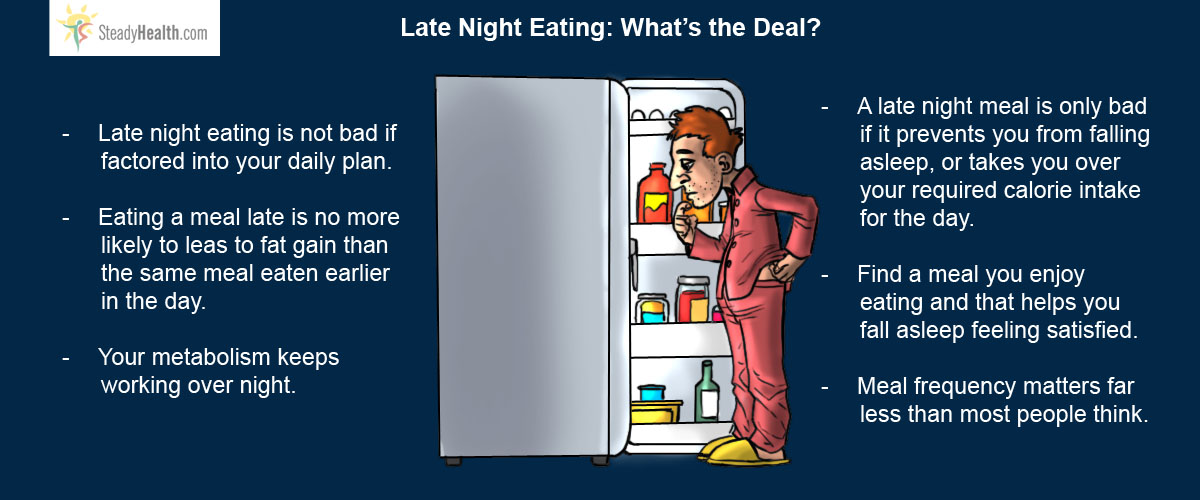Table of Contents
The Premise
The idea behind eating late at night being bad for weight loss is pretty simple and seems to make sense at first.
When you sleep, your activity levels drop, leading to a lower metabolic rate and a lower calorie burn over night. Therefore, proponents of avoiding pre-bed eating argue that you simply don’t need any calories before you hit the sheets, and that calories consumed late are more likely to be stored as fat.
Sounds plausible, but when you delve a little deeper, there’s no truth in this whatsoever.
Firstly, the assumption that your body simply slows down to zero and does virtually nothing is false.
This may not be as many as you burn during the day when up and moving around, and it certainly isn’t as many as when you’re exercising, but you are still burning calories.
Secondly, your body doesn’t work on a 24 hours clock. When midnight hits, it doesn’t simply just start anew, and store all the calories you’ve eaten that day that haven’t been burned yet. It is a far more complex machine, that requires a constant energy input to keep working. You might not burn those pre-bed calories right away, but you can be pretty certain you’ll burn off a few overnight and the rest the next day.
Nutrient timing is generally greatly overrated
Nutrient timing refers to the times at which you eat a meal or snack, or consume calories in any form whatsoever. Over the years, several different theories have been put forward over nutrient timing, such as eating the majority of your calories and carbs before a workout, eating the majority of your calories and carbs after a workout, eating or fasting at certain times of the day, and so on. If you look long enough, you’ll find more or less any eating pattern suggested somewhere.
In reality though, most of this is minutia. Unless you’re an elite athlete, partaking in long sessions, or training multiple times every day, when you eat is much less important than what you eat and the amounts you eat.
The most important factor, regardless of your goals, is your total daily energy and macronutrient intake.
See Also: Night Eating Syndrome
Let’s use an example of a person weighing 150 pounds, who has a maintenance calorie intake of 2,000 per day. If this person had eaten 1,300 calories by 10pm and wanted a late night meal, they could eat something containing 300 to 400 calories and still end the day 300 to 400 calories below their maintenance level, meaning they’ll lose weight, despite eating late.
If they consumed the same number of calories by 4pm, they’d have exactly the same results, showing that nutrient timing isn’t important for most people and that eating before bed is absolutely fine.
- “4 Reasons to Eat More Calories (And Carbs) at Night”, By Nate Miyaki, August 16, 2013, http://www.livestrong.com/article/557830-4-reasons-to-eat-more-calories-and-carbs-at-night/
- Mindmap by steadyhealth.com
- Photo courtesy of Phil and Pam Gradwell (to be) by Flickr : www.flickr.com/photos/philandpam/1517884183



Your thoughts on this